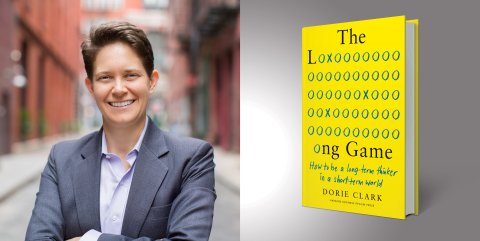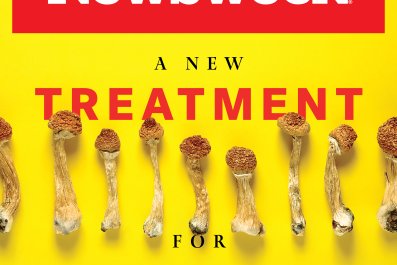Communications Expert Dorie Clark talks to Newsweek about her new book, The Long Game, and strategies like "looking for raindrops" and "20 percent time" to maximize career advancement. In this Q&A, she shares why simply being busy isn't effective and what motivates her.

What's the most important advice you would give someone just starting out in their career to help them achieve a successful and fulfilling professional lifestyle?
It's essential to make sure you're running your own race, rather than following the path that society or your family expects from you. So often, we get pushed into either choosing a career that will make a lot of money, or there's pressure—sometimes self-imposed—to "follow your passion." But what if you don't know what your passion is? I suggest following a strategy of "optimizing for interesting." You may not know what your calling in life is, but you definitely know what you find interesting. So keep doing more of that, and it will eventually lead you in the right direction—or you'll realize that it's not right for you, and you can pivot.
You discuss the importance of patience in your book, how success doesn't come overnight. What intermediate milestones might offer motivation along the way?
I'm a fan of a strategy I call "looking for the raindrops." So often, we're waiting for the ultimate sign of success—the big promotion, the main-stage keynote or the huge raise. But it often takes a while for those to happen. Instead, we need to train ourselves to look for smaller signs—ones that might be invisible if you're not looking for them. It's like when a thunderstorm starts, and in those first few moments, you're not even entirely sure if what you're feeling is raindrops. But it's a sign of more to come. It might take the form of an increased number of people sending you LinkedIn invitations, because your reputation is growing, or perhaps unsolicited compliments from customers or colleagues.
What leadership techniques and goals should be employed by people in non-management positions?
I recommend for everyone to employ "20 percent time." This is a concept Google popularized, in which they encourage their employees to spend up to a fifth of their time on projects or activities outside of the regular scope of their job. Whether you work for yourself or you work inside a company, this is an important practice to take up, because it ensures that you're placing a little bet and you're continually developing yourself professionally, so that you don't stagnate. Maybe it's taking online classes during your lunch break, or listening to professional development books while you work out. It can be small, but the benefits add up.
The pandemic has been motivational for some to rethink their priorities, call long-lost friends, etc.; yet bleak for others, who miss in-person coffees and conferences. For those who have trouble making virtual connections, what would you suggest to reenergize their networking muscles?
I started hosting virtual cocktails during COVID, but I know that's not for everyone. You don't have to force yourself to socialize over video calls, per se. But it is important to maintain connections, so think about other ways you can do it while still feeling authentic. Even creating a habit of sending two or three personal emails per day to check in on friends or get updates can be a valuable way to keep the relationship connected.
What motivates you?
It drives me crazy that so often, it feels like the loudest voices in the room are the ones that always get heard. Instead, I'd like to live in a world where the best ideas get heard. So in my books, and in my teaching and executive coaching, I try to help good people and good companies get their message across in a noisy and crowded environment.
"Crazy-busy" has become something of a point of pride for some people, yet you talk about how it can be detrimental to long-term success. How should you let coworkers know you're being productive while using your time better?
Research by Silvia Bellezza at Columbia Business School and her colleagues shows that busyness in many Western societies has become a form of status. I think it's important to keep your colleagues posted about the work that you're doing, but that's not necessary and it's not healthy, so we should cut it out.
You keep pretty busy yourself. This is your fourth book. You host a weekly interview series (with Newsweek), Better, as well as teach at Duke and speak widely. What's next on the horizon for you professionally?
One of the projects that I talk about in The Long Game—my own 20 percent time—is learning to write musical theater. In 2016, I created a 10-year goal to write a show that made it onto Broadway by the 2026 season. So I'm working on that! :)
What do you do for fun?
I started taking weekly ping-pong lessons during the pandemic. There's no better way to get into flow state!







